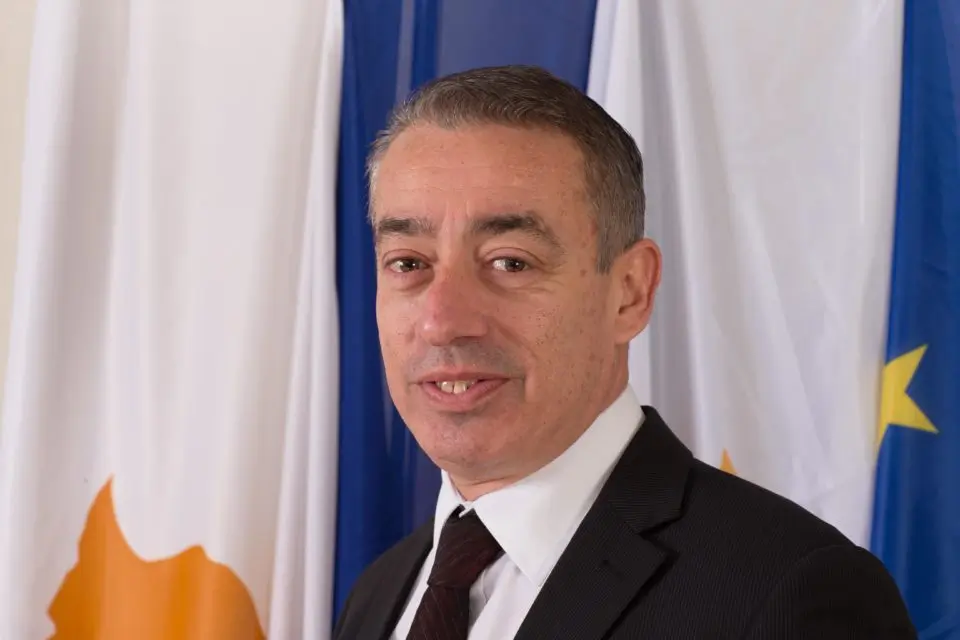A second university degree, allegedly forged by the former commissioner for volunteerism Yiannakis Yiannaki, was never submitted in court despite earlier suspicions that it was falsified. The degree, sent by Yiannaki to the audit office in May 2021 and later forwarded to the police, was excluded from the indictment, sparking questions about the legal handling of the case.
According to a report on Philenews, only one fake degree has been formally admitted in court. a document dated 1992, which Yiannaki has confessed to forging. However, the emergence of a second suspicious qualification raises the possibility that the crime of forgery was not an isolated act of youth but a repeated offence committed in mature age. Legal observers suggest this could have significant weight in sentencing, had it been formally included in proceedings.
Polina Efthyvoulou, law office spokeswoman confirmed that the 2021 document had not been included in the indictment. She stated that the main accusation of forgery remains valid under another past application submitted by Yiannaki. According to Efthyvoulou, the decision not to include the newer document aimed to avoid complications, as it was obtained by the former auditor general in a process whose legal standing might be challenged.
Efthyvoulou explained that had the 2021 document has been part of the charges, the former auditor general would have been required to testify. That, she said, might have allowed Yiannaki’s legal team to contest the legitimacy of how the document was collected, raising procedural issues about the auditor general’s authority, as he is not a police investigator.
Despite the omission, Efthyvoulou insisted that the court has access to relevant evidence, including Yiannaki’s recent public comments regarding his academic background. She stressed that testimony on the 1992 fake degree had already been presented to the court.
The issue returned to the spotlight following a courtroom exchange on April 2 between a cybercrime officer and the defence lawyer. The officer revealed that a forensic check of Yiannaki’s laptop uncovered 26 search queries and 83 visits related to a particular university’s grading procedures. When asked whether any evidence showed Yiannaki had purchased the degree, the officer replied, “No.”
However, an earlier letter from the former auditor general, sent to the police and the youth board (Onek) in May 2021, detailed the submission of a file by Yiannaki. This included a translated secondary school diploma and a university degree different from the one officially on file at Onek. Both documents raised red flags.
The audit office noted that the secondary school diploma submitted in 2021 appeared genuine at first glance, which raised suspicion over the authenticity of the one held on file. The university degree, dated 29 June 1992, bore the names and signatures of four individuals associated with the California State University system. Yet, according to the auditor general’s online research, none of those officials held their respective roles in 1992. All four only served simultaneously between 2014 and 2016.
This discovery led the auditor general to request a full police investigation into potential forgeries of both the high school and university documents. He also flagged that several websites openly advertised fake degrees from the same university and that one example matched the format of the degree Yiannaki submitted in 2021.
A legal expert, speaking on condition of anonymity, questioned why the police investigator dismissed the possibility of forgery so readily, given the available online evidence of fake degrees being sold by the same institution. The lawyer stressed that the existence of a third forgery in 2021 – more than two decades after the previous offences – would have greatly worsened Yiannaki’s legal position.
Yiannakis Yiannaki served as commissioner for volunteerism from 2013 to 2021, a role appointed by the president of the republic. He resigned after the allegations of academic fraud first came to light. The case, widely followed in Cyprus, has raised broader concerns about the vetting of public officials and the handling of falsified qualifications in government posts.






Click here to change your cookie preferences